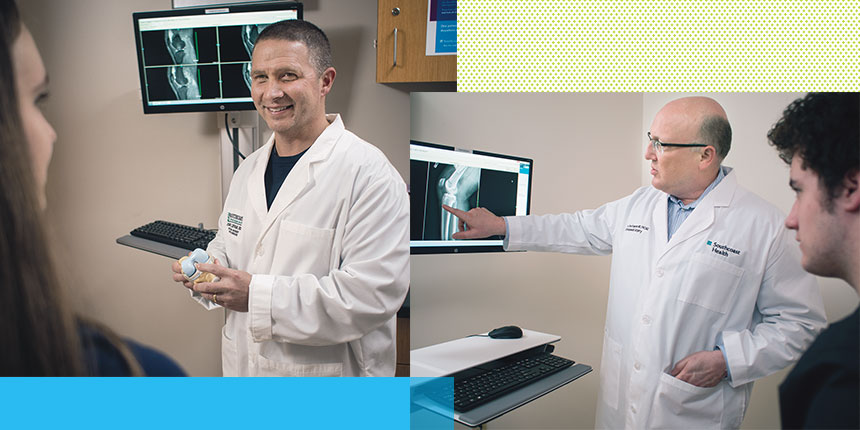Health+
Orthopedists Help Keep Active Kids Safe

Southcoast specialists offer advice on handling common summertime sports injuries
For many kids, summer vacation means hours of outdoor play time, often from just after breakfast until twilight. Whether they’re into unstructured play or summer sports camps, kids can be at higher risk for injury during these months.
Southcoast Health has orthopedists and sports medicine specialists who can help with any injuries that befall kids (or adults, for that matter). Here, two of Southcoast’s orthopedic surgeons share important information on how to prepare for summer activities and what to do if an injury occurs.
Preventing injuries
“Kids can learn a lot through unstructured play — I’m a big fan of it,” says Dr. Chris Robertson, orthopedic surgeon at Southcoast. “Parents just need to know where they’re playing. Find out what the environment is like: Will they be on a playfield with a good surface? Are they in someone else’s backyard? Will there be any supervision? Once you know that, make sure that kids have proper clothing for the temperature and proper footwear for the type of activity.”
For organized sports, Dr. Joseph Lifrak, orthopedic surgeon and team physician for the Providence College Friars hockey team, says proper equipment is important and conditioning is key. For example, “Kids should wear face masks on their baseball helmets,” he says. “And if the sport involves a lot of running, make sure they do conditioning. Even kids have to prepare for their season; they should not go from relatively little activity to running for two hours a day, five days in a row.”
When injuries happen
“You can’t prevent all catastrophic injuries,” says Dr. Lifrak. An injury that is bleeding profusely or looks like a broken bone or damaged joint warrants a 911 call.
A limb or joint that is not grossly swollen or bruised or does not look misaligned can be treated at home with the RICE protocol:
- Rest
- Ice
- Compression
- Elevation
In addition, you can give the child ibuprofen to reduce inflammation, and acetaminophen for pain. (Remember, it is not a good idea to give a child under age 17 aspirin because of the risk of Reye’s syndrome, a serious neurological disorder.)
Time to call in the pros
If you have followed these procedures and the child is complaining of significant pain or something just doesn’t look right within the next 24 hours, call a pediatrician or orthopedic specialist. “We have 10 orthopedists at Southcoast and we can usually accommodate people quickly, within a day or two,” says Dr. Lifrak.
Recovery times will vary according to the nature of the injury, of course, but kids heal more quickly than adults. “You might expect the injury to heal within one to six weeks,” says Dr. Robertson, “which may seem like a lifetime to a kid.”
But everyone has to be patient: Parents shouldn’t force a kid back into play if they’re not ready, Dr. Lifrak advises. “The injury has to be healed before any game or tournament, no matter how big it is! The kids have a lifetime of play ahead.” They need to wait until they feel 100 percent or get the OK from their doctor or they risk re-injury.
Learn more about orthopedic and sports medicine services available at Southcoast Orthopedics.
